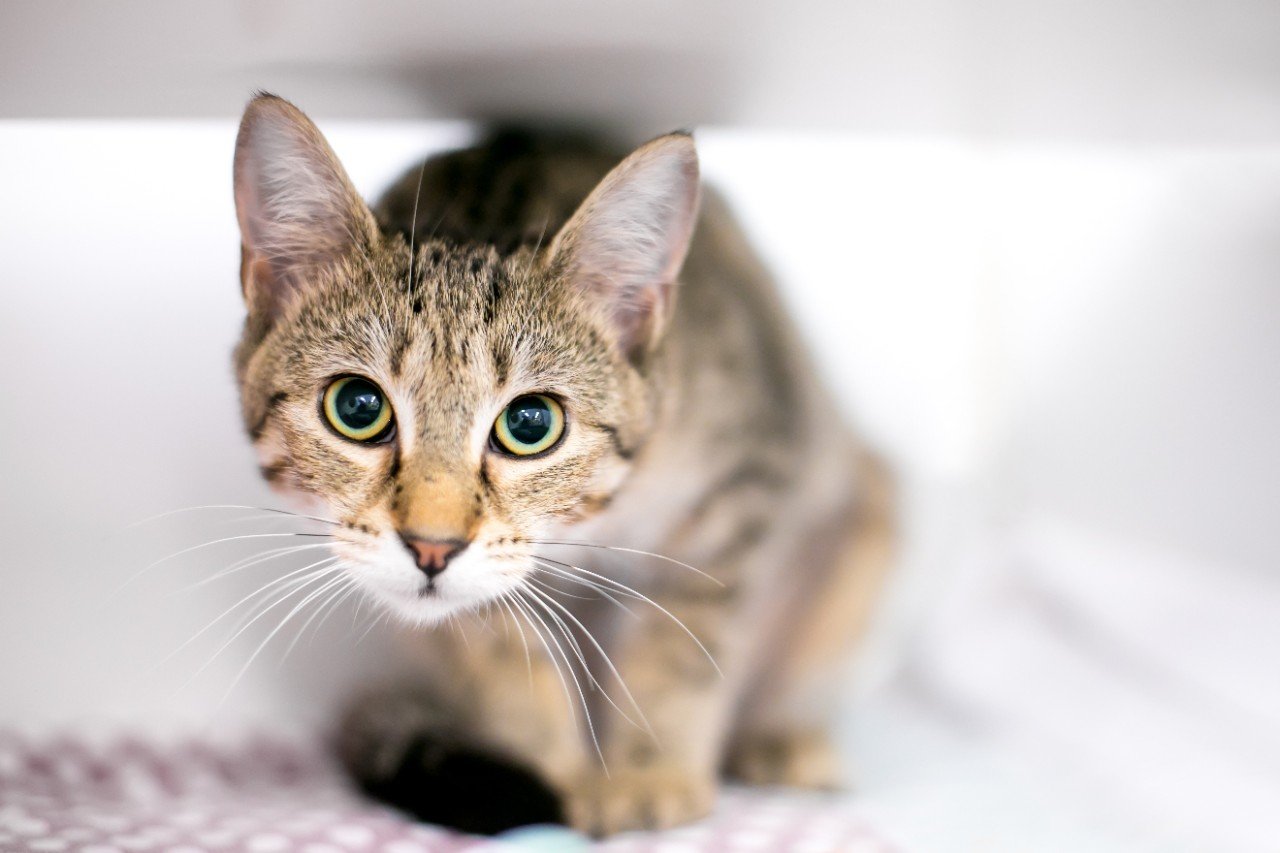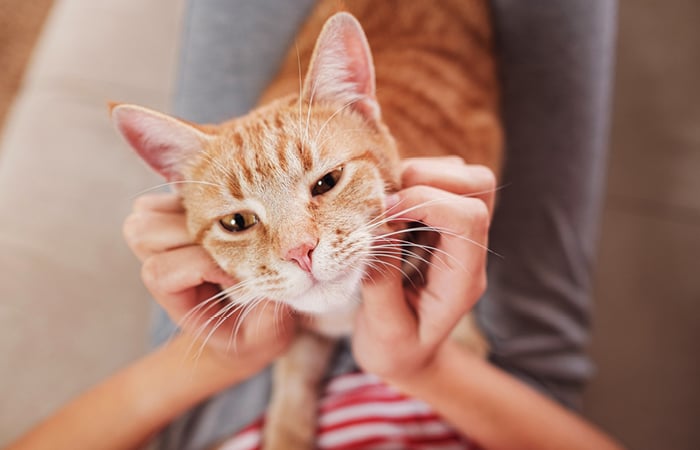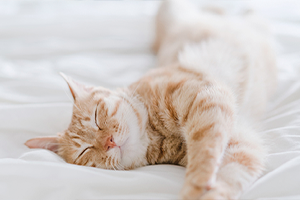5 common signs of stress in cats

Quick Links
Why is your cat stressed?
Signs of stress in cats
While pet owners may be aware that stress is a common problem for cats, they often miss the early signs that their own cat is feeling anxious or stressed. Nevertheless, cats’ body language often conveys a lot about how they are feeling.
Watch out for the following signs of stress in cats:
1. Hiding or running away
2. Spraying or pooing in unusual places
3. Loss of appetite
4. Cystitis
5. Overgrooming
Other signs of stress
How can you help a stressed cat?
The sooner you notice the signs of stress, the more chance you have of easing your cat’s anxiety. Pets can cope with a certain amount of stress, but a ‘normal’ stress reaction should only last a short time, and then end when the stress trigger has gone. If it lasts longer, or happens more often, your cat’s anxiety could escalate into a fear or phobia.
To determine whether your cat is stressed, it’s essential to know what your cat’s body language is like when they are happy. For example, a happy cat will have a relaxed posture and ears that are facing forward. Tail positions vary, but a tail up is friendly greeting behaviour. A stressed cat is likely to have flattened ears and dilated pupils. It may press its tail tightly around its body, or even tuck its tail between its legs.
If your cat is showing signs of stress or anxiety, it is important to take them to the vet straight away. Your vet may recommend that you seek the support of a qualified behaviourist – for example, a behaviourist registered with the Animal Behaviour and Training Council.
Ways to ease stress in cats
While you’re working to identify the problem that is affecting your cat’s wellbeing, here are some simple tips to ease their stress in the meantime:
- Provide places to hide. Cats feel safe in high places or under the bed. Make sure that your cat’s resources – food and water bowls, litter tray and scratching post – are easily accessible to them in a quiet space where they won’t be disturbed by other pets or family members.
- Avoid making big changes in your home. Cats are very scent-oriented, so new furniture or a new carpet can make them feel anxious.
- Manage your own voice and body language. Owner anxiety often leads to cat anxiety.
- Use a pheromone plug-in diffuser or spray. These can help to reduce feline anxiety, although they should be used in conjunction with veterinary and behaviourist support as part of a stress-reduction strategy.
- Pay attention to your cat’s body language. Don’t handle your pet if they seem reluctant to be touched. Always give them the opportunity to get away while you’re petting and stroking them.
If you’ve noticed a change in your cat’s behaviour, it’s important to seek advice from your vet or a registered behaviourist to keep your pet happy and healthy.
Petplan is a trading name of Pet Plan Limited (Registered in England No. 1282939) and Allianz Insurance plc (Registered in England No. 84638), Registered office: 57 Ladymead, Guildford, Surrey GU1 1DB.
Pet Plan Limited is authorised and regulated by the Financial Conduct Authority. Financial Services Register No. 311969. Allianz Insurance plc is authorised by the Prudential Regulation Authority and regulated by the Financial Conduct Authority and the Prudential Regulation Authority. Financial Services Register No. 121849. Pet Plan Limited is a subsidiary of Allianz Insurance plc.
















